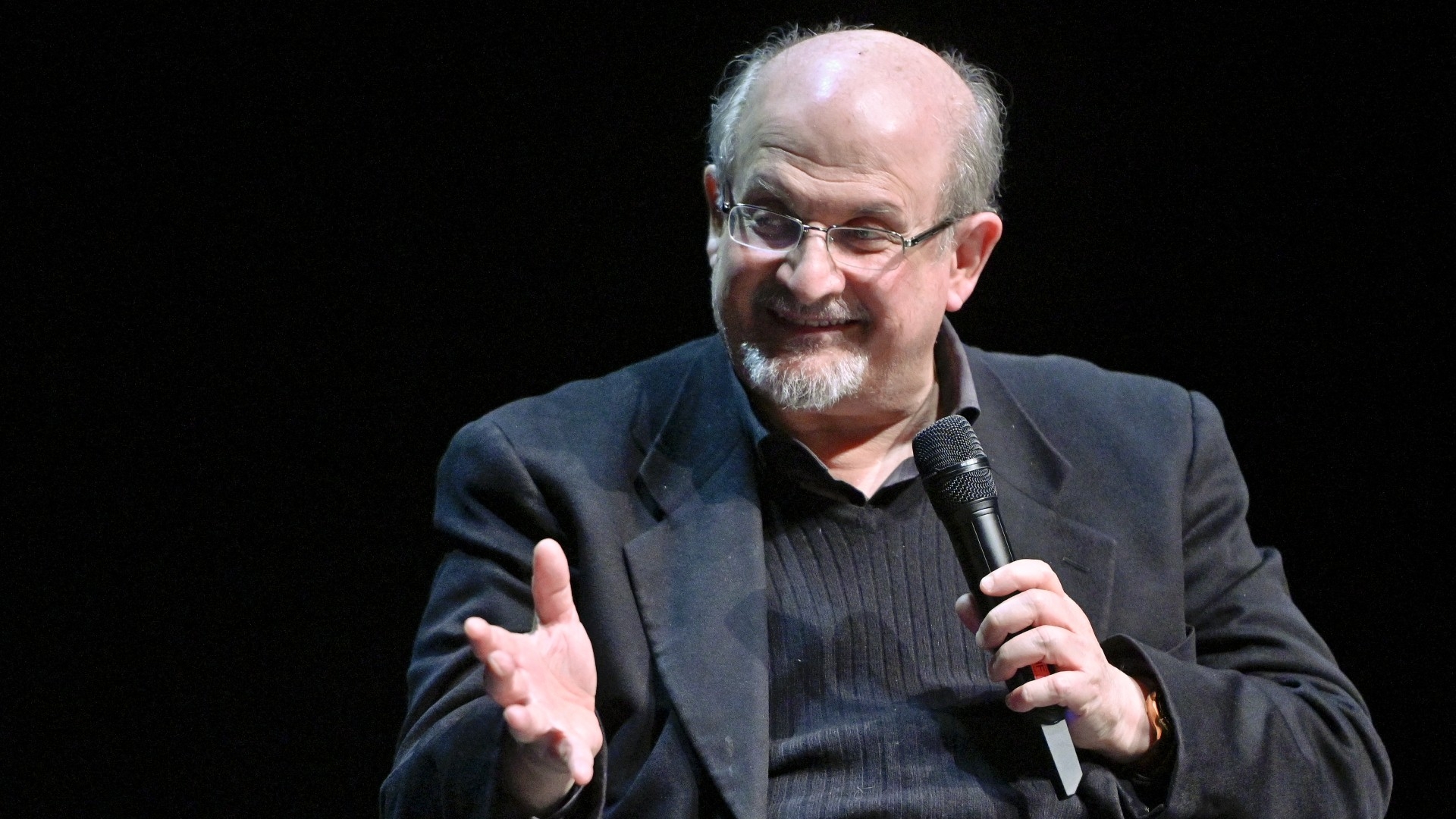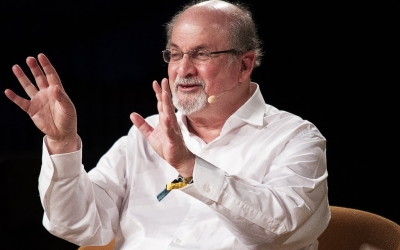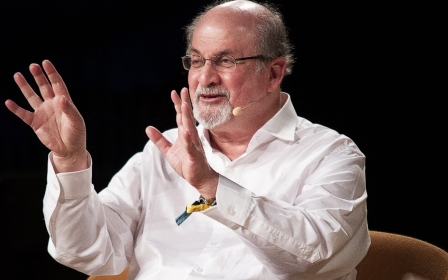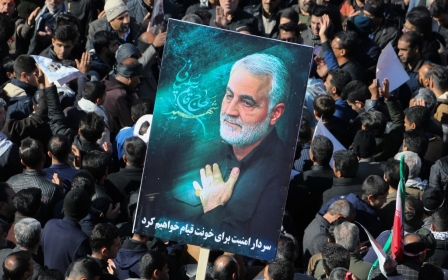Salman Rushdie stabbing: Iran blames author for attack, denies involvement

Iran had denied any involvement in the stabbing of Salman Rushdie at a cultural event in New York on Friday, instead blaming the British-Indian writer and his supporters for the attack, in the first official statement made by the country.
Commenting four days after the incident, foreign ministry spokesperson Nasser Kanaani said on Monday: "We, in the incident of the attack on Salman Rushdie, do not consider that anyone deserves blame and accusations except him and his supporters.
"Nobody has the right to accuse Iran in this regard. We categorically and seriously deny any connection to the attacker with Iran."
A spokesperson for Boris Johnson, Britain's prime minister, criticised the statement, describing it as "ludicrous".
Stay informed with MEE's newsletters
Sign up to get the latest alerts, insights and analysis, starting with Turkey Unpacked
"Clearly it is ludicrous to suggest that Salman Rushdie was in any way responsible for this abhorrent attack on him," the spokesperson told reporters.
"This was not just an attack on him, it was an attack on the right to free speech and expression and the UK government stands both by him and his family, but equally we stand in defence of free speech around the world."
Rushdie, 75, was set to deliver a lecture on artistic freedom at the Chautauqua Institution in western New York state when a man rushed onto the stage and stabbed him in the neck and abdomen almost 10 times.
Hadi Matar, a US citizen of Lebanese descent who was apprehended at the scene, pleaded not guilty to charges of attempted murder and assault at a court appearance on Saturday.
The FBI said it had searched the residence of Matar, 24, in Fairview, New Jersey.
'Guided' attack
Several intelligence officials suggested that Matar had been in "direct contact" with Iran's Islamic Revolutionary Guard Corps (IRGC) - an influential paramilitary body in the country - before the attack, according to VICE World News.
VICE quoted a Nato counter-terrorism official from a European country as saying that the stabbing against Rushdie was a "guided" attack, which had an imprint of an intelligence agency which talked the suspect into action without being directly involved.
"Close scrutiny needs to be paid to his communications. More investigation will reveal more information on the exact nature of the links," the Nato official told VICE.
Another intelligence official told Vice that Matar was in direct contact with "people either directly involved with or adjacent to the Quds Force", the arm of the IRGC which controls its foreign operations.
"It's unclear the extent of the involvement, if this was a directly supported assassination attempt or if it was a series of suggestions and directions in picking a target," the official said.
The Lebanese family of Matar hails from the town of Yaroun in south Lebanon, where the pro-Iran Hezbollah movement holds sway.
"A 24-year-old born in the United States did not come up with Salman Rushdie as a target on his own," a Middle Eastern intelligence official told VICE.
"Even an avid consumer of Iranian propaganda would have some difficulty finding references to Rushdie compared to all the other modern enemies designated by the regime," the source added.
Lebanon visit
Asked about the stabbing, a Hezbollah official told Reuters on Saturday: "We don't know anything about this subject so we will not comment."
Matar's mother told the UK's Daily Mail newspaper that her son had "changed" on returning to New Jersey from a visit to Lebanon in 2018.
"I was expecting him to come back motivated, to complete school, to get his degree and a job," she said.
"But instead he locked himself in the basement. He had changed a lot, he didn't say anything to me or his sisters for months," Silvana Matar, 45, said.
Rushdie was born into a Muslim Kashmiri family in Mumbai, before moving to Britain.
He has long faced death threats over his book The Satanic Verses, which is viewed by some Muslims as containing blasphemous passages.
Published in 1988, the book was banned in many countries with large Muslim populations.
In 1989, Iran's supreme leader Ayatollah Ali Khomeini's released a fatwa, or religious edict, calling on Muslims to kill the author and offering a bounty of nearly $2m.
However, in 1998, Iranian President Mohammad Khatami said that his government no longer endorsed the killing of Rushdie.
Rushdie's family said the author had sustained life-changing injuries as a result of the attack, but he had come off a ventilator and was able to speak, with the condition of his health heading in the right direction.
Middle East Eye delivers independent and unrivalled coverage and analysis of the Middle East, North Africa and beyond. To learn more about republishing this content and the associated fees, please fill out this form. More about MEE can be found here.





